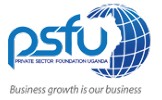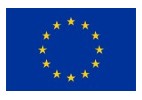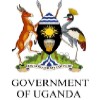At a breakfast meeting in Protea hotel on 12th May, 2022, the Ugandan government in partnership with its private sector announced an ambitious plan to eradicate corruption within Uganda’s business sector. Tom Vanneste, the Enabel country representative confirmed the initiative is part of a three-year skills, attitude, governance, and anti-corruption project funded by the European Union and jointly implemented by Enabel and the Private Sector Foundation Uganda. The project will support companies embrace electronic procurement to eliminate human contact in the procurement process thus improving business ethics and governance. Furthermore, a platform to report corruption cases will be established following the IGG’s report which states that at least 1 out of 10 payments for public procurements is marred by corruption.
In 2018, the private sector identified corruption as one of the three major obstacles to doing business in Uganda. Data from Chr. Michelsen Institute’s Anti-Corruption Resource Centre indicates that about 1 out of 5 companies in Uganda identify corruption as a barrier to doing business in the country. This follows the 2021 Corruption Perception Index of Transparency International survey which ranked Uganda 27th out of 180 most corrupt countries. Rudi Veestraeten, Belgium’s Ambassador to Uganda said corruption undermines fair competition in business because it takes out trust although unfortunately many people fear reporting corruption cases because of the reprisal risk.
Steven Asiimwe, the PSFU Executive Director, welcomed the close collaboration between different actors such as the Inspector General of Government, State House Anti-Corruption Unit, Public Procurement and Disposal of Assets Authority, and National Information Technology Authority of Uganda in the implementation of the project which aims to make Uganda’s business environment more conducive for investments. This will be achieved by increasing the supply of qualified workers, establishing private sector-led initiatives to fight corruption, and strengthening public-private sector dialogue.
Contact Info
Address :
1st Floor, Padre Pio House Plot 32, Lumumba Avenue
Phone :
+256 393 254 212
Mobile :
+256 708 330 371
Our Partners




Copyright ©
2024 Sustainable Business for Uganda Platform
Powered by Quadtee
